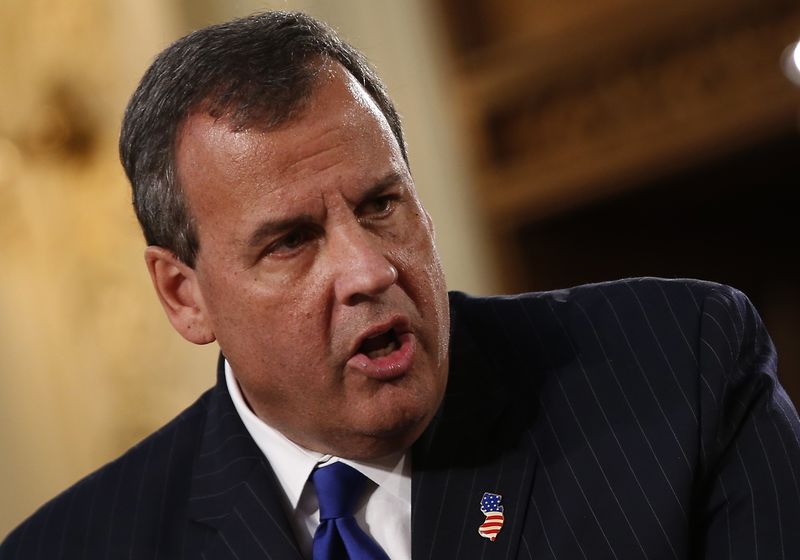By Hilary Russ
TRENTON, N.J. (Reuters) - An attorney for New Jersey Governor Chris Christie's administration argued in court on Thursday that the state cannot be forced to make its contributions into the public pension system.
The state's 2011 pension reforms violated the New Jersey constitution when they made state pension contributions a contractual right, forcing future legislatures to pay for something they themselves did not approve, Assistant Attorney General Jean Reilly argued.
Public sector unions sued the state last year after Christie said he would not pay for the "sins of the past" and cut nearly $900 million from the state's fiscal 2014 pension contribution and directed the legislature to slash $1.57 billion from the 2015 payment as well.
They argued that with those cuts, Christie violated the 2011 law that he has touted as a hard-fought partisan victory achieved through cooperation with the Democrat-led legislature.
Christie's handling of the state's underfunded retirement system could be used as ammunition by critics if Christie decides to seek the Republican presidential nomination for 2016, a decision he could make by the end of the month.
New Jersey's pension system is funded at just 44 percent, according to one measurement using new accounting rules. One of its funds will run out of money within 10 years, the measurement shows.
However the liabilities are measured, the state's long history of shorting the pension system is at the root of its deterioration, Standard & Poor's Ratings Services has said.
Under Christie's watch, the state has been downgraded eight times by Wall Street credit rating agencies. New Jersey is now the second-lowest rated state behind Illinois.
Governors and legislatures have been shorting the system since before Christie first took office in 2010. Christie says his administration has put more money into the state's retirement system than any other in history.
Pensions get their funding from contributions by employers, employees and returns on investments. New Jersey Superior Court Judge Mary Jacobson said that the legislature had used "unmistakable language" in crafting the 2011 law to make the state's payments into the pension system a contractual right for workers. New Jersey's pensions cover about 300,000 current retirees.
Jacobson sounded skeptical of the state's arguments, saying that a contractual right to a state pension contribution seemed to have been "deliberately" included in the law in exchange for higher contributions from public employees.
"You trivialize the contracts clause. You seem to push it aside as if it's meaningless. I can't afford to do that," Jacobson told Reilly.
In June, Jacobson refused to force Christie to restore the 2014 cut, saying that New Jersey's revenue crisis at that time trumped public workers' contractual rights. But she did not address the 2015 cuts at the time. The state sought to have the case thrown out.
Jacobson sparred with Reilly on Thursday over why the governor did not support a tax hike to help close the state's huge pension hole. Jacobson said that raising revenue "solves it all."
Reilly replied that the legislature was not trying to solve the problem when it passed a millionaire's tax that it knew the governor would veto because for years he has said it doesn't actually help the state.

"Yes, yes, yes, but what's the option," Jacobson exclaimed.